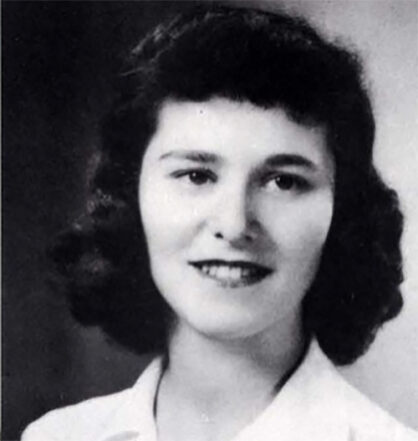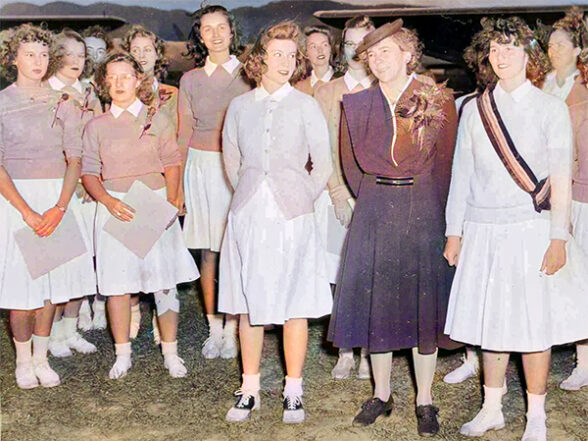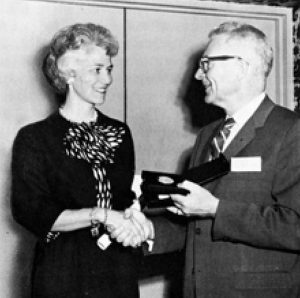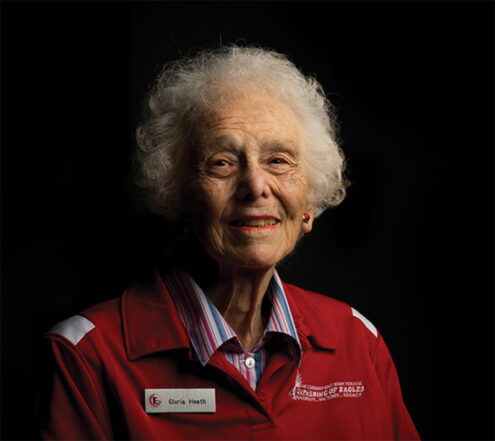Home » About the Foundation » Founders » Gloria Heath
Gloria W. Heath
Aviator, search-and-rescue pioneer, aviation safety expert
Gloria W. Heath, a pioneering female pilot and later an expert in search-and-rescue operations on land, at sea and in the air, was a founding member of Flight Safety Foundation and an early force in the Foundation’s efforts to disseminate aviation safety information worldwide.
She was born in 1922 in New York City. While a student at Smith College, a women’s college in Massachusetts, she helped form the Smith Flying Club, serving as president of the 15-member group and joining with the 14 other members to chip in $100 each to buy the club’s only airplane, which was used in their lessons.
She earned her private pilot license, and after her graduation from Smith in 1943, Heath applied to the U.S. Women Airforce Service Pilots (WASPs). Of the 25,000 women who applied, she was among the 1,074 who completed the seven months of training. She was stationed at Pocatello, Idaho, where she flew Martin B-26 bombers towing targets during live ammunition training exercises for U.S. Army Air Forces P-47 fighter pilots. She was the only woman in her squadron.


After the war, Heath joined the engineering department of the Aero Insurance Underwriters and worked for the head of the department, Jerry Lederer. In 1947, with the encouragement of airlines and manufacturers, Lederer established an organization known as Aircraft Engineering for Safety (AES) to share and disseminate mechanical aircraft safety information. He asked Heath to run the organization initially, as he was still working for the insurance underwriters. In 1948, Lederer joined Flight Safety Foundation as its first director. AES merged into Flight Safety Foundation as a new division, and Heath served as its head.
Heath served at the Foundation for more than a decade and her contributions included developing the first formal course in aircraft accident investigation, which was conducted by the Foundation. She maintained an active role with the Foundation for nearly two decades, developing procedures and a manual for emergency landings on water, an emerging concern. Heath organized and participated in the Foundation’s international events and served as its consummate ambassador.
In 1965, she moved to the Cornell Guggenheim Safety Center as assistant director. Three years later, she founded her own consulting company, SAR-ASSIST, which specialized in searching for and rescuing passengers in distress on land, at sea or in the air. Among her accomplishments was the U.S. Federal Aviation Administration’s endorsement in 1968 of her recommendation for electronic locator beacons in civil aircraft. The beacons became a requirement in 1972.
Heath also chaired the International Academy for Astronautics Space Safety and Rescue Committee. Her efforts were critical to the development of today’s worldwide satellite search-and-rescue system and to the United Nations’ designation of the 1990s as the International Decade for Disaster Prevention.
Heath was designated by Women in Aviation International in 2003 as one of the 100 most influential women in the first 100 years of the aviation and aerospace industry. She was honored with numerous awards, including the Amelia Earhart Award (1957), the Laura Taber Barbour Air Safety Award (1965), Smith College Medal (1971), Engineering Sciences Award of the International Academy of Astronautics (1990), the Women in Aerospace Lifetime Achievement Award (1995) and the Flight Safety Foundation President’s Citation (2000). She also was among 300 WASPs awarded the Congressional Gold Medal in 2009 for their wartime service.
She died Dec. 16, 2017, at age 95.

The Flight Safety Foundation Gloria Heath Trophy is named after a woman who played a critical leadership role in the early days of the Foundation. She was an aviator who served in the U.S. Women Airforce Service Pilots during World War II. She was named one of the 100 most influential women in aviation by Women in Aviation International and was a recipient of numerous awards, including the Amelia Earhart Award and the Laura Taber Barbour Air Safety Award.
The Flight Safety Foundation Gloria Heath scholarship program is named after a woman who played a critical leadership role in the early days of the Foundation. She was an aviator who served in the U.S. Women Airforce Service Pilots during World War II. She was named one of the 100 most influential women in aviation by Women in Aviation International and was a recipient of numerous awards, including the Amelia Earhart Award and the Laura Taber Barbour Air Safety Award.
